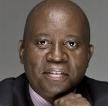Why the IEC’s Actions Matter
14 October 2020
Following the IEC’s rejection of ActionSA’s registration of a political party, some people have suggested our logo should just be changed.
It is understandable where they are coming from; don’t let a logo get in the way of such an important project. Fair enough.
Except it is not.
The actions of the IEC matter as a critical Chapter 9 Institution entrusted to safeguard our electoral democracy.
We now live in an era where foreign governments interfere in sovereign elections to destabilise countries.
Social media and deep fakes have the ability to influence elections more easily than the intended contestation of ideas.
It was only a year ago when electronic voting was mooted to address the shortcomings of election material experienced at so many voting stations across the country. The potential of system hacking is too scary to consider.
As the ANC’s hold on voters continues slipping, an IEC capable of ensuring that the will of voters is accurately reflected, freely and fairly, has never been more important.
This is why ActionSA’s rejection matters.
The truth is that legislation in our country has granted the IEC vast powers. In our instance most recently, to admit or reject political party applications.
Positioned as the gatekeeper of who may or may not participate in our democratic process, the IEC holds a serious responsibility in public law which must be exercised with consistency and rationality.
The IEC’s rejection provides two reasons. Firstly, is the question of similarity to another political party and, secondly, the use of the South African flag in our logo. Facts matter, or certainly should, because politics has become a space where noise overshadows reason.
I have found myself staring at the two logos trying desperately to see any similarity that the IEC is alluding too and I cannot find their point. Anyone who feels otherwise would have a hard time claiming they would be confused between the two parties at the polls.
The logos, the names and the acronyms are sufficiently different, something our internationally accredited marketing company has confirmed by way of a professional analysis. Their assessment demonstrates greater similarity between other political parties allowed to register than that of ActionSA and this other party in question.
It must be pointed out that this party ActionSA is alleged to be similar to, has never contested elections and has 13 twitter followers. Which voters are to be confused at the polls exactly remains a valid question.
It is worth noting here that legislation requires the political parties that are not represented in any legislature, national, provincial or local, to renew their applications each year. In this instance this has not happened by the IEC’s own admission. Further, the IEC is meant to initiate de-registration of registered parties that do not contest general elections. This did not happen either.
Why the IEC entertained their objection to our registration when, in Electoral Law, they should have initiated a process to de-register this party after it failed to renew its registration and did not contest the 2019 General Elections.
There are over 600 political parties in South Africa, to suggest similarities will not exist would require one to name a political party something with science fiction-like peculiarity. This situation is borne of the IEC’s failure to exercise its responsibilities to reduce the obscene number of parties that exist as social clubs rather than to contest elections.
The IEC has registered the African Independent Congress and the African National Congress to exist next to one another on the ballot paper, seemingly without concern for voter confusion. They have admitted the National Freedom Party to contest alongside the Inkatha Freedom Party – two rivals in KwaZulu-Natal without concern.
To say the IEC has applied its legal responsibilities inconsistently would be an understatement.
Turning to the matter of the flag, the IEC’s citing of The Heraldry Act of 1962 is patently outside of their legal ambit. The Electoral Commission Act of 1995 affords the IEC limited grounds to reject an application, and the use of the South Africa flag or the Heraldry Act is not amongst them. Perhaps this is why COPE’s logo closely resembles the South African flag.
Despite efforts to walk this back in media interviews as ‘offering advice’ it is clear that this was a ground to reject the application and that it was a decision taken outside of the legal powers afforded to the IEC.
When challenged on this fact, the IEC responds by suggesting that mistakes were made in the past and they shouldn’t still be made today. Unfortunately for the IEC, this is not how the law works. The exercise of public power must be consistent and it must be rational.
ActionSA’s identity is not like that of other parties formed without a constituency by the ambitions of politicians. Our identity was forged through an engagement with South Africans that solicited millions of responses. These responses detailed what kind of political future South Africans wanted for their country. What emerged was an understanding that the people of our country want a political party that ends the era of cheap talk and broken promises and replaces it with the era of action. South Africans wanted an organisation that brings South Africans together to Act as One, unifying people and not dividing them.
This is how ActionSA was forged, a contract between us and the people of South Africa. It is more than a logo and more than a name, and this is something that our political establishment will never understand.
This is why we will go to the ends of the earth to challenge the IEC’s decision on our registration, this is why it matters.
By Herman Mashaba, 14 October 2020

